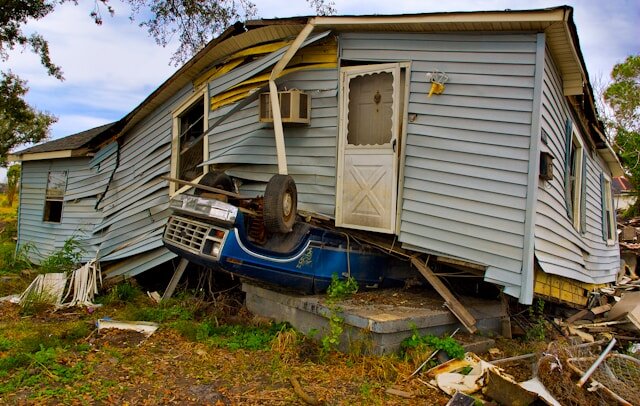While this may seem bold, it isn’t. There are many reasons why they won’t buy your house and here are a few things supporting it.
I don’t mean to say that your house isn’t unsellable, but what conditions would have to be met to make this happen.
As we have done many deals, and turned even more down for some reason or another, we don’t purchase every house we look at.

Why a Cash Investor Won’t Buy Your House
Selling your home to a cash investor can seem like an easy and convenient option. No waiting for bank approvals, no contingencies, and often a faster closing process. But what happens when a cash investor walks away from your deal? If you’ve been struggling to attract or close with cash buyers, it’s essential to understand why they might pass on your property. Here are the top reasons a cash investor won’t buy your house.
1. The Numbers Don’t Work
Cash investors are in the business of making a profit. If the numbers don’t add up to a profitable deal, they won’t proceed. Investors typically buy homes at a significant discount to account for repair costs, holding expenses, and eventual resale or rental profits. If your asking price is too high relative to the market and needed repairs, an investor will walk away.
Solution: Be realistic about pricing. Research comparable sales, factor in repair costs, and understand that investors need to buy low to make a return on investment.
2. Extensive Repairs or Structural Issues
While many investors specialize in buying distressed properties, some issues can be deal-breakers. Foundation problems, severe mold, fire damage, or major plumbing and electrical failures may require too much capital to fix.
Solution: If your home has major structural issues, consider getting quotes for repairs and adjusting your price accordingly. You might also target specialized investors who handle extreme fixer-uppers.

3. Title Issues
A property with title complications—such as liens, unpaid taxes, ownership disputes, or undisclosed heirs—can be too much hassle for an investor to untangle. We have encountered many title issues, usually from a probate property with many heirs. Although these can usually be fixed, the time it takes and the costs involved may burden the sale for an extended period of time.
Solution: Before listing your home, do a title search to identify and clear up any issues. Hiring a real estate attorney or title company can help expedite the process.
4. Market Conditions Aren’t Favorable
If the local real estate market is declining or there’s uncertainty, cash investors may be hesitant to buy. They consider factors such as rising interest rates, decreased buyer demand, and economic downturns before making a purchase.
Solution: If the market is slow, be flexible with pricing and terms. Offering seller financing or a lease option may attract investors in uncertain times.
5. Unrealistic Seller Expectations
Some homeowners assume that just because an investor is paying in cash, they should still receive top dollar offers. Investors aren’t traditional homebuyers; they need a discount to make the deal worth their time and money.
Solution: If you want a full-market-value offer, you’ll likely need to sell to a retail buyer through traditional financing. Otherwise, adjust your expectations when dealing with investors.
6. The Property’s Location
Location plays a significant role in an investor’s decision. If your home is in a declining neighborhood, has high crime rates, or lacks demand, an investor may see too much risk in the purchase.
Solution: Highlight any potential upsides, such as upcoming neighborhood improvements, city development plans, or strong rental demand. If the location is a hard sell, pricing the property competitively may help.

7. Low Rental or Resale Potential
If an investor plans to rent or flip the property, they need to ensure that the return on investment is worthwhile. If comparable homes in your area have low appreciation, high vacancy rates, or poor rental yields, an investor may walk away.
Solution: Provide data on rental rates, occupancy trends, or projected appreciation if you believe your home has long-term potential. Investors appreciate numbers that justify their purchase.
8. Better Investment Opportunities Elsewhere
Real estate investors evaluate multiple deals at once. If they find another property that offers a better return with less hassle, they’ll prioritize that investment over yours.
Solution: Make your deal attractive by offering a fair price, flexible terms, or potential incentives such as seller financing.
9. Legal or Zoning Issues
If your property has legal complications—such as improper permits, zoning violations, or an illegal addition, investors may see it as too risky or costly to fix.
Solution: Work with a real estate attorney to resolve any zoning or permit issues before marketing your property to investors.
10. The Investor’s Strategy Doesn’t Fit Your Property
Not all cash investors operate the same way. Some focus on flipping, while others prefer long-term rentals or wholesale deals. If your property doesn’t fit their model, they’ll pass.
Solution: Understand different investor strategies and market your home accordingly. Some investors may prefer distressed properties, while others look for turnkey rentals.
If a cash investor isn’t buying your house, there’s usually a logical reason behind it. Understanding these factors allows you to adjust your approach and increase your chances of securing a deal. Whether it’s pricing, repairs, location, or legal issues, taking proactive steps can help make your property more appealing to investors. If you’re serious about selling to a cash buyer, consider working with a real estate professional who understands investor needs and can help position your home effectively.
By addressing these common hurdles, you can improve your chances of successfully selling your property to a cash investor and moving forward with your next real estate endeavor.
Not sure if your home will sell?
Give us a call or message us to find out.
